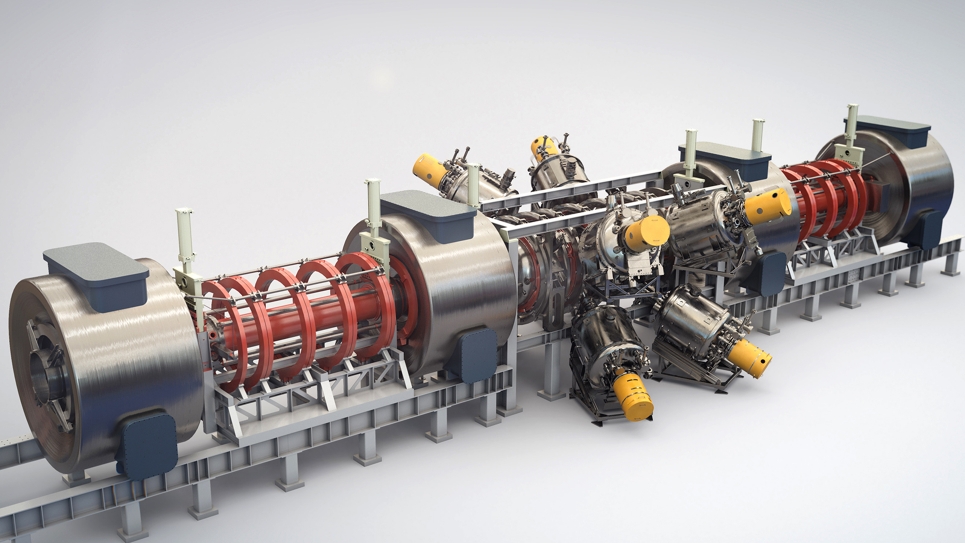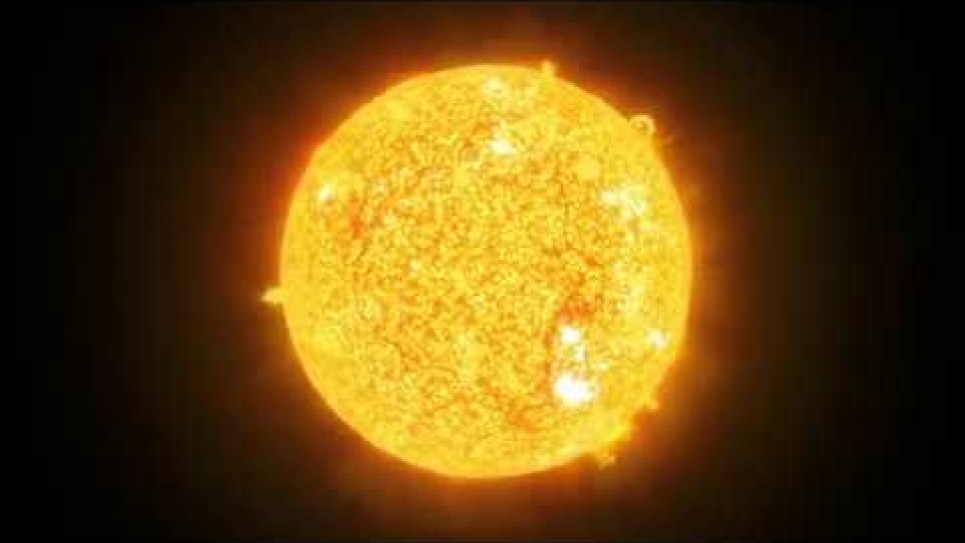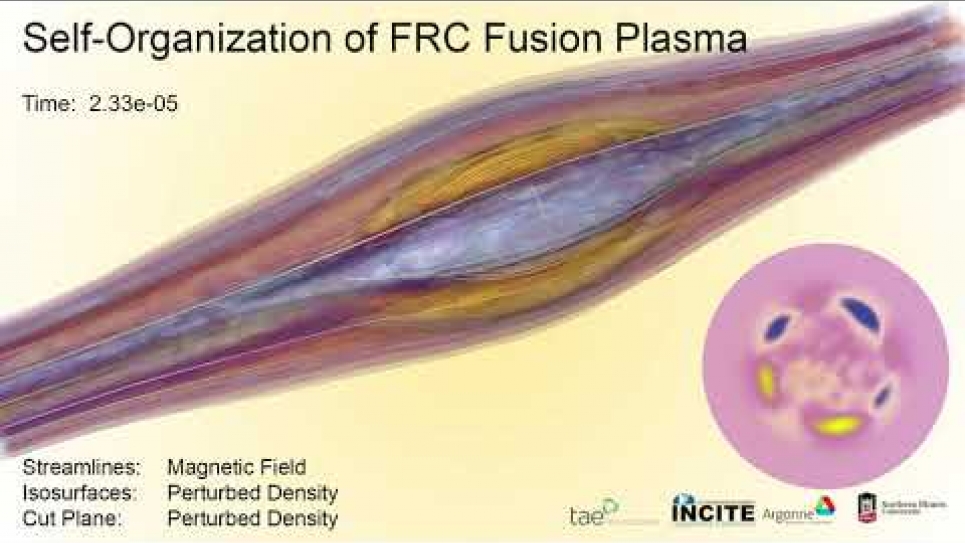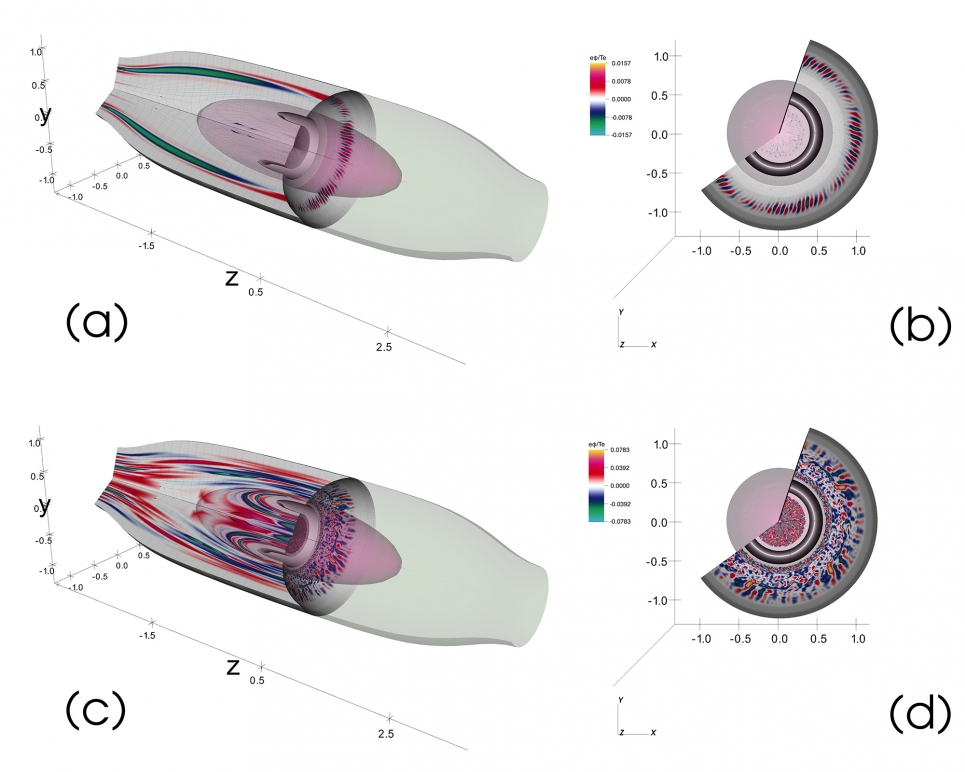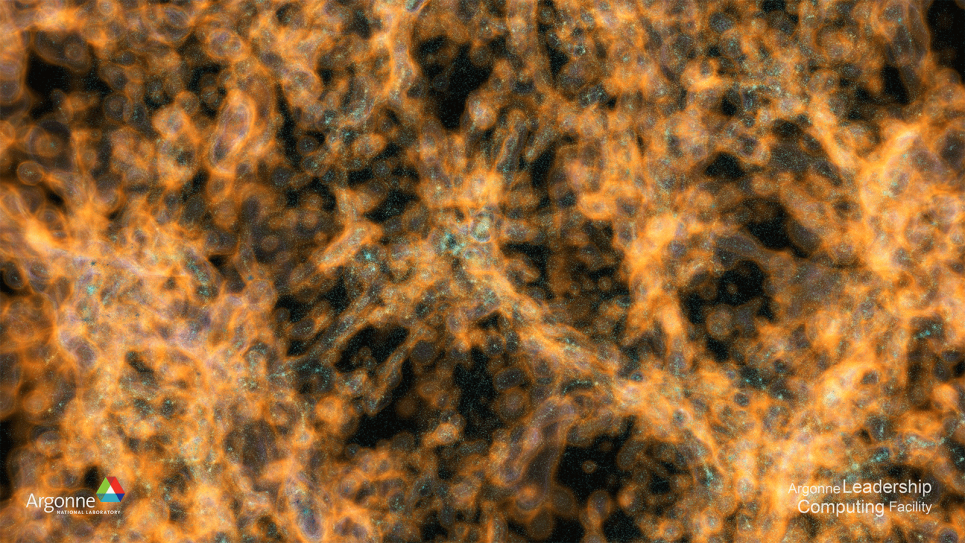To get a better handle on the physics, the group may need more computational fire power. Currently, they are only able to simulate the confinement vessel region, which measures nearly 80 feet long and stands two stories high.
With the promise of exascale computing right around the corner and the delivery of one of the nation’s first exascale systems, Aurora, to Argonne in 2021, there is the potential for TAE to dramatically increase the domain size of the simulation.
“The sort of multiscale problems that TAE is addressing will require DOE leadership computing facilities and advanced resources, like Aurora, as the simulations scale up. The potential for scientific discovery and innovation with exascale capabilities is enormous,” says Jennings.
To keep apprised of and provide input on the latest developments in exascale, TAE maintains a strong presence on the industry council of DOE’s Exascale Computing Project (ECP), a collaboration between DOE’s Office of Science and its National Nuclear Security Administration, to deliver a capable exascale computing ecosystem. Serving as an external advisory board, the council is made up of industry leaders interested in using exascale computing capabilities to inform and accelerate their research and development efforts.
“The promise of exascale is that we can look at whole systems,” says David Martin, manager of Industry Partnerships and Outreach at the ALCF and co-executive director of the ECP Industry Council. “Instead of just modeling a cylinder, we model the whole engine. Instead of modeling a jet engine, we model the whole airplane. For TAE, it’s modeling the whole confinement system, bringing us another step closer to clean, unlimited energy.”
TAE received ALCF computing time and resources through the U.S. Department of Energy’s Innovative and Novel Computational Impact on Theory and Experiment (INCITE) program.
Argonne National Laboratory seeks solutions to pressing national problems in science and technology. The nation's first national laboratory, Argonne conducts leading-edge basic and applied scientific research in virtually every scientific discipline. Argonne researchers work closely with researchers from hundreds of companies, universities, and federal, state and municipal agencies to help them solve their specific problems, advance America's scientific leadership and prepare the nation for a better future. With employees from more than 60 nations, Argonne is managed by UChicago Argonne, LLC for the U.S. Department of Energy's Office of Science.
The U.S. Department of Energy's Office of Science is the single largest supporter of basic research in the physical sciences in the United States and is working to address some of the most pressing challenges of our time. For more information, visit https://energy.gov/science
